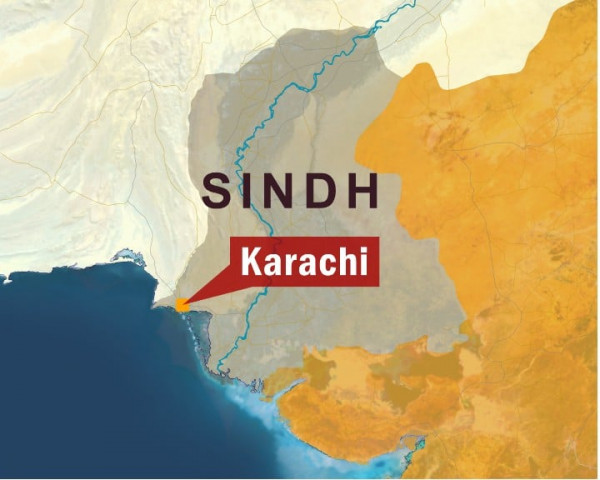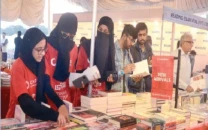Solution to dirty problems
Clean water and sanitation at relief camps could solve 75 per cent of health problems flood survivors are facing.

Solution to dirty problems
“Even though we have limited resources we used whatever we had very judiciously and efficiently,” added Sindh Health Secretary Hashim Raza Zaidi at the press briefing.
Looking at the silver lining of this otherwise disastrous event, Zaidi said the ministry and health workers had a chance to administer vaccination drops to children. It has also allowed Lady Health Workers to introduce themselves to the flood victims.
According to the health secretary, he visited the flood-affected in every district across the province but his department did not get time to monitor the relief efforts and initiatives. “We can either monitor the planned efforts or deal with the provisions,” he responded when questioned by the media.
In the meantime, the health ministry along with eight donor agencies, including Unicef, WHO and USAid, have formed a health watchdog, to better facilitate, monitor and coordinate efforts for the flood victims, Zaidi said.
Dengue
In response to a question on the recent death of a dengue patient at Patel General Hospital, Zaidi said all private hospitals were bound to declare such information but many had failed to. A lack of information skews statistics. The government’s focal person, Shakeel Aamir Mullick of Civil Hospital, Karachi, receives information after a 12-hour delay. Zaidi explained that an additional problem is that doctors at many private hospitals are unable to identify the symptoms of dengue and are treating it like the flu or fever and malaria. The total number of reported dengue patients is currently 356.
Camps
Zaidi said diarrhoea is the dominant problem at many relief camps - 274,917 cases were reported between July 31 and September 22 - across Sindh. The WHO is setting up diarrhoea treatment centres on its own. Unicef donated 850,000 sachets of ORS but the Sindh ministry asked it to match each sachet with a litre of water.
Published in The Express Tribune, September 24th, 2010.



















COMMENTS
Comments are moderated and generally will be posted if they are on-topic and not abusive.
For more information, please see our Comments FAQ